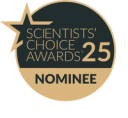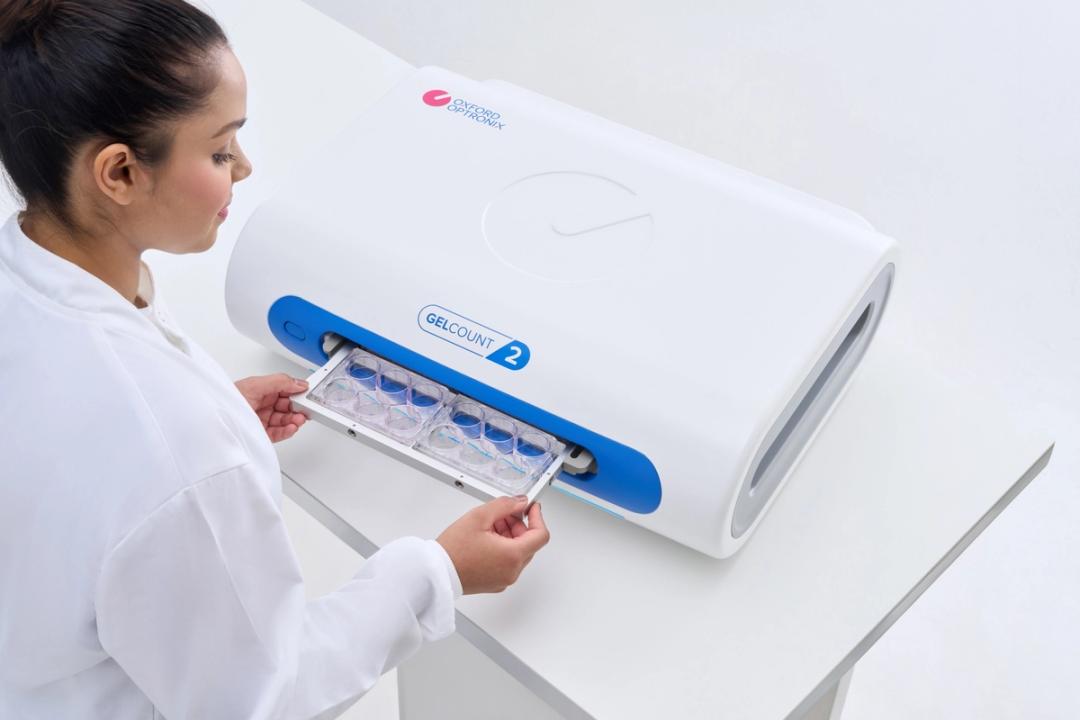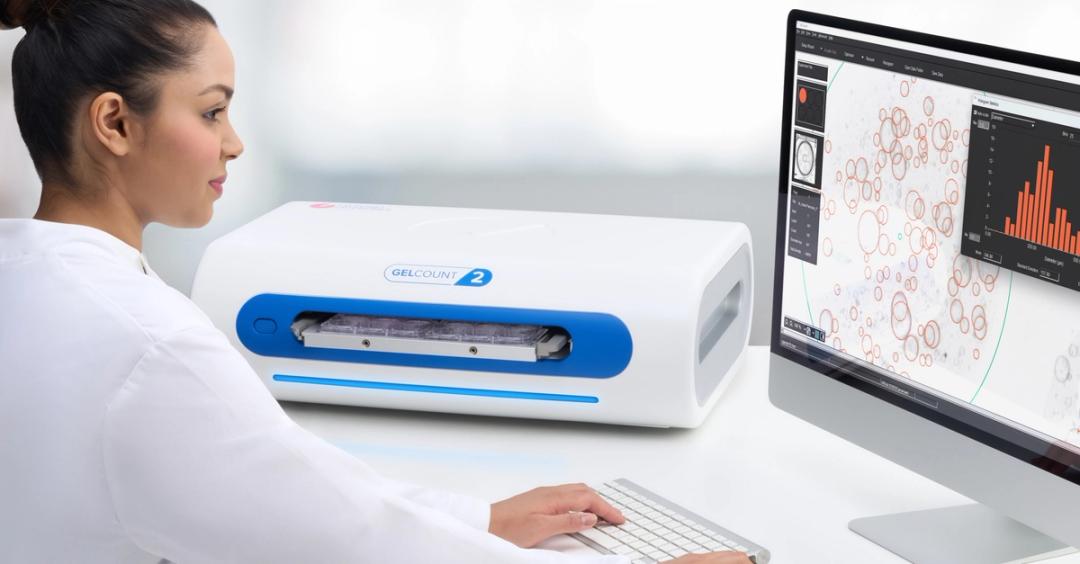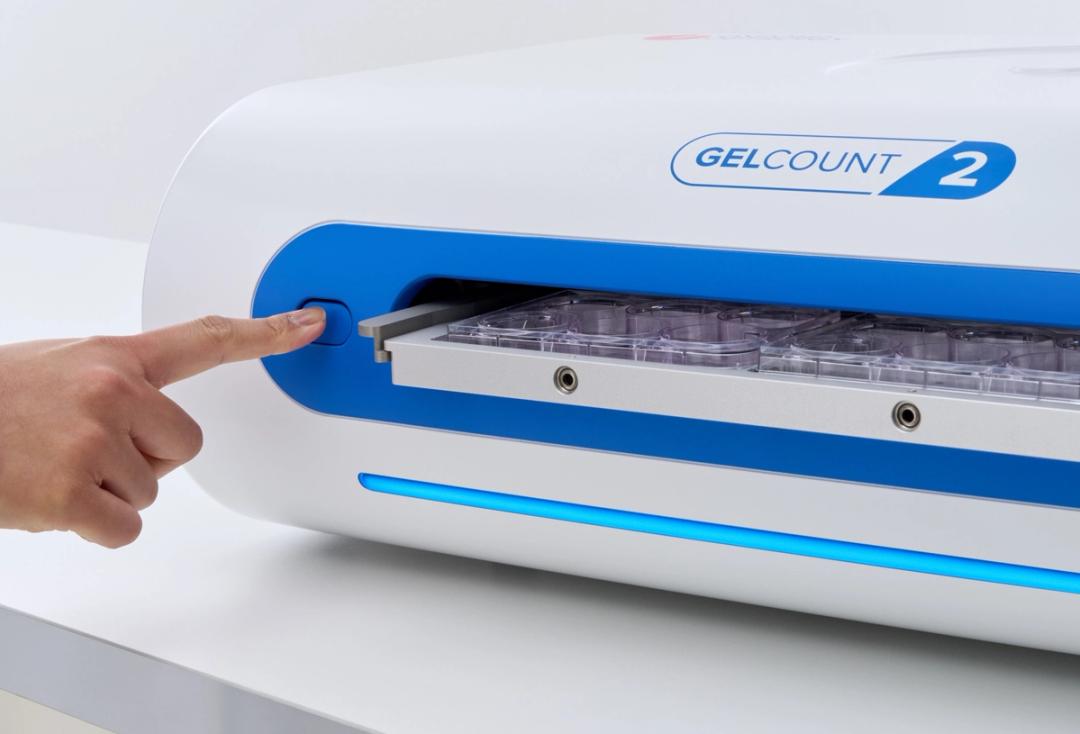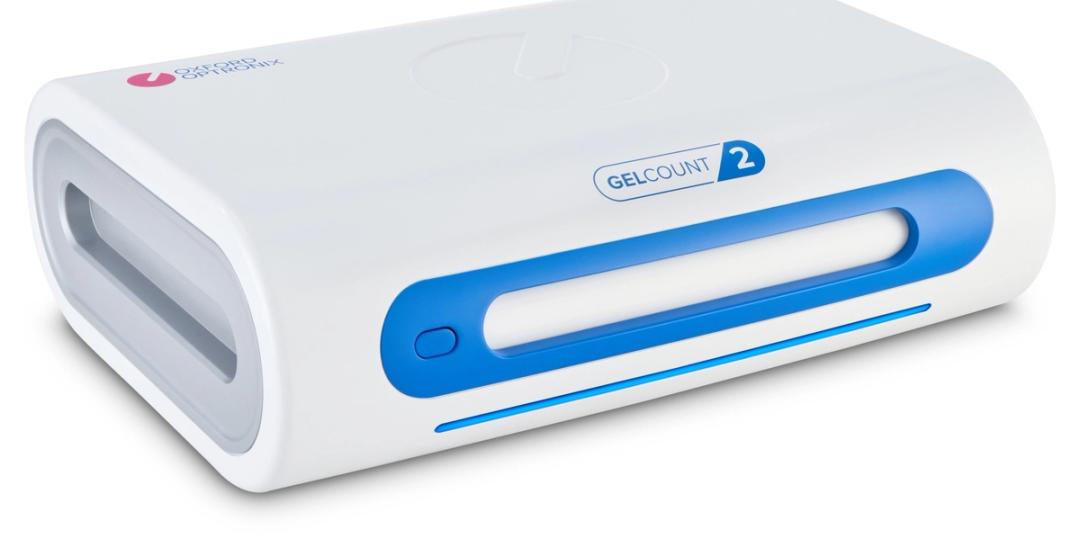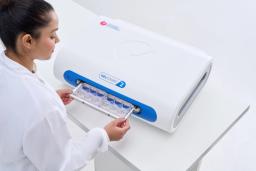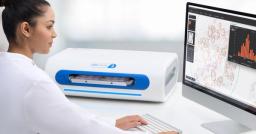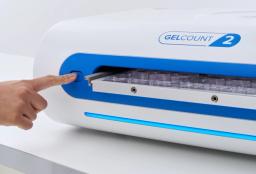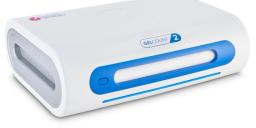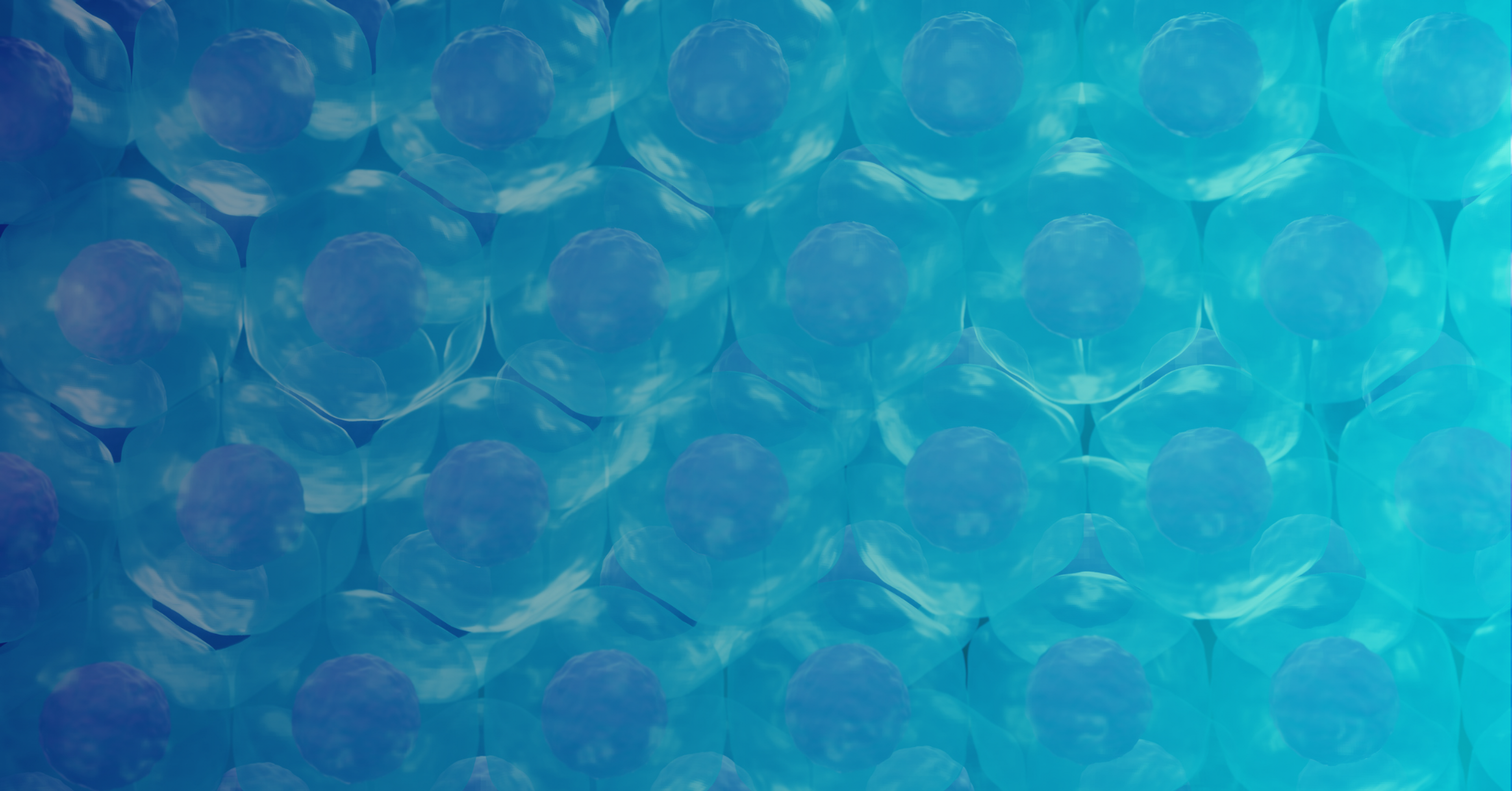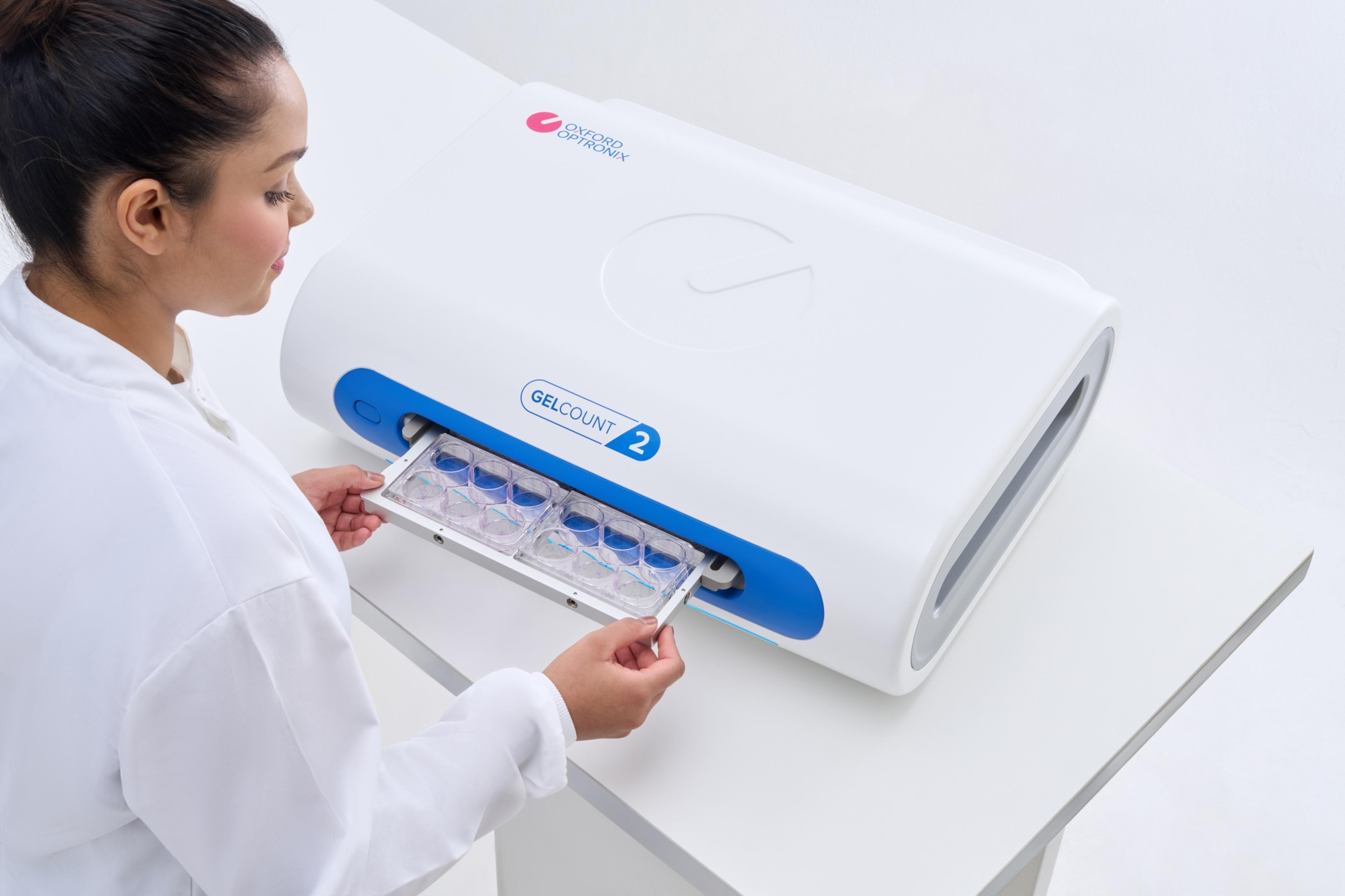GelCount & GelCount 2
Second-generation imaging and analysis platform for colonies, spheroids and organoids in multi-well plates and Petri dishes
Excellent quantification of colony assay and the dimensions of spheroids
Quantification of clonogenic survival assay
The gel count provides an effective method for visualising clonogenic survival tests and facilitates straightforward quantification, contingent on the cell line in question. This guarantees an objective evaluation and ensures an independent assessment. The GelCount is also employed to determine the size of tumour spheroids at different time points. Due to the higher resolution required for this, the scanning process is somewhat more time-consuming. However, simple and precise detection and sizing of the spheroids is also possible here. The contact persons are available at all times and are highly committed to finding a solution for individual problems.
Review Date: 29 Nov 2024 | Oxford Optronix
Impressing machine
Colony counting
The use of Gelcount is very time-saving, user friendly and easy to learn how to use it. The service after purchasing is quite impressive, they devote many hours to solve my issues and found that really great.
Review Date: 8 Dec 2022 | Oxford Optronix
Our system of choice for medium throughput colony counting and spheroid growth.
Colony counting and spheroid growth
The software is easy enough to use, although it is sometimes a bit more tricky to fine tune the settings. The data is exported in XL but also as a picture of the plate, which is good as sometimes a picture is very striking. Reproducibility is very good, and once parameters have been set up for a cell line and an assay, it saves time and is not dependent on user for colony counting. It is a bit annoying to have to send the machine back to the manufacturer for annual servicing, and not have an engineer come on site, but we get the machine back quickly.
Review Date: 29 Apr 2019 | Oxford Optronix
Manufacturer's Response
We are grateful for Dr. Trivier's constructive feedback. While the scale of our operations indeed do not presently allow us to offer on-site preventative maintenance servicing the recommended servicing/recalibration interval for GelCount is every 2 years. By offering free packaging and pre-completed transport documentation as well as a rapid turn-around service we endeavour at all times to minimize the inconvenience that is associated with 'return-to-base' instrument servicing.
Great
Counting of cells
It is a good machine and works fine. Easy to use and trustworthy results. I recommend it.
Review Date: 25 Apr 2019 | Oxford Optronix
Quicker and more accurate analysis of colony assays.
Mammalian colony counter
The GelCount is fantastic! We can now scan and count piles of plates in a few hours instead of days. It is very easy to use, reproducible; and the technical support is very responsive. A must-have for anyone doing a lot of colony assays.
Review Date: 24 Apr 2019 | Oxford Optronix
Really great product!
Radiation biology
GelCount is really easy to use and the software is very user-friendly, it has saved me a lot of time on colony counting.
Review Date: 23 Apr 2019 | Oxford Optronix
This instrument is terrific
Colony counting
Results are amazing and reproducible. We really love it in our lab in the US. I would love to have Oxford come and give an in house tutorial for all our people.
Review Date: 23 Apr 2019 | Oxford Optronix
Saves a substantial amount of time & reduces plastic TC plate usage by 75%!
Analyze genotoxins in mutant cell lines
We used the GelCount to change our colony survival assays from a 6-well to a 24-well format. When we were getting this method set up, we got great support from the company to optimize the settings of the instrument. This new method has been highly reproducible and saves culture media, time, and plastic.
Review Date: 13 Mar 2019 | Oxford Optronix
Great results. Very user friendly.
Mammosphere assay
This is a great instrument. The software is very easy to operate and the technical support is always ready to help. It saves a lot of time.
Review Date: 16 Jan 2019 | Oxford Optronix
Good and can be easier to navigate
Cout number of colonies in soft agar plates
The equipment is good enough for analyzing the number of colonies, giving the colony count pretty quickly. It would be better if the ease of saving the images with and without colony counts is better.
Review Date: 11 Oct 2017 | Oxford Optronix
An all-in-one imaging and software platform for the detection, counting and processing of tumour colonies, spheroids and organoids in cancer biology. GelCount™ is conceived to rapidly and accurately detect colonies in 2D, 3D, spheroid, organoid and suspension assays.
Key Features:
- Dedicated hardware and software platform for counting adherent or non-adherent colonies, spheroids and organoids.
- Substantial throughput advantages over manual microscope colony counting
- Elimination of operator counting bias and fatigue-related counting error
- Customizable detection of colonies based on size, shape and OD, as well as intelligent exclusion of false positives
- Colony diameter and other per-colony statistics and histograms exported directly to Excel®
- Unlimited software installations for off-line image processing on independent workstations
- Unlimited software updates
- 2-year product warranty

